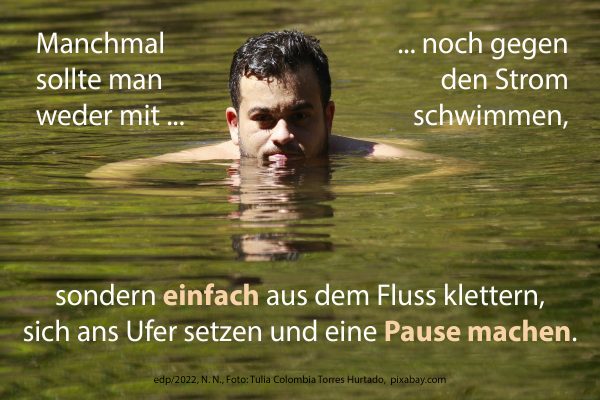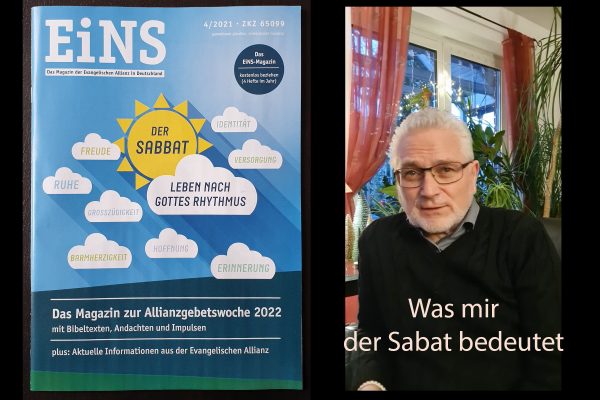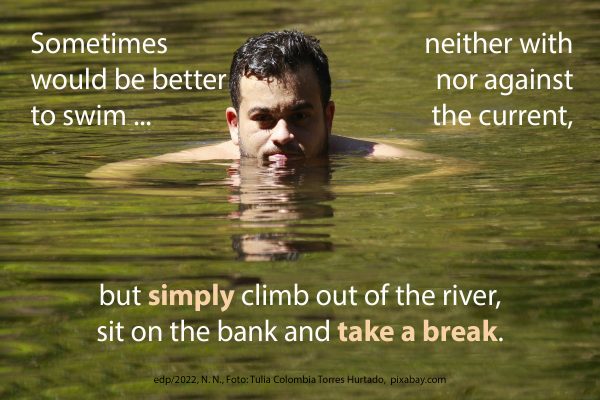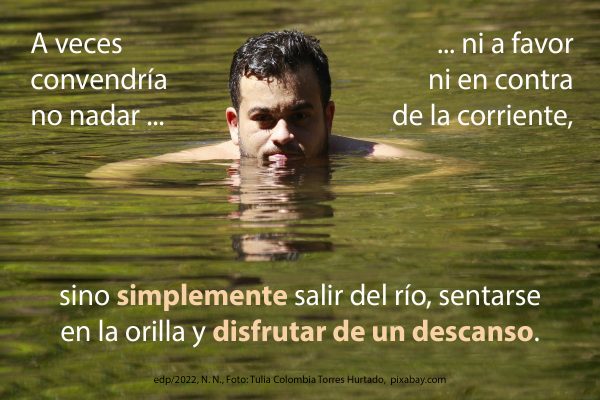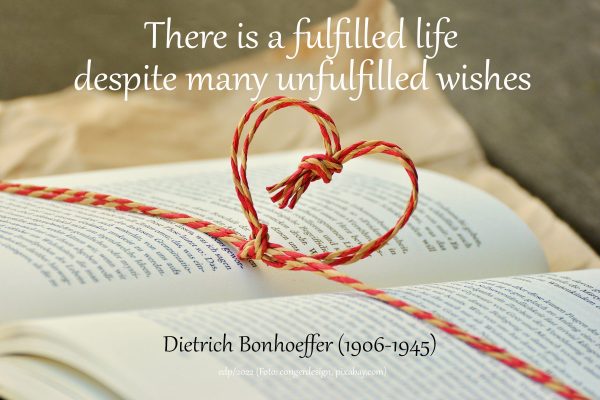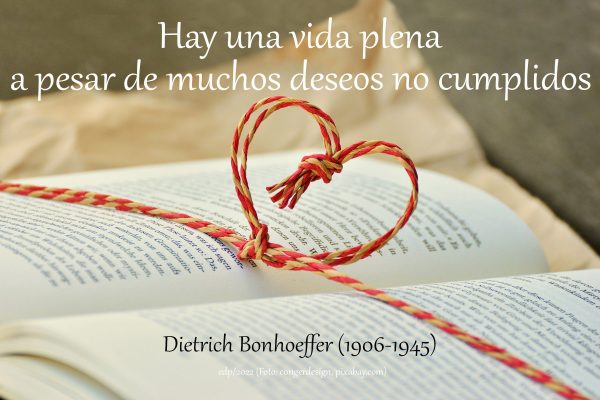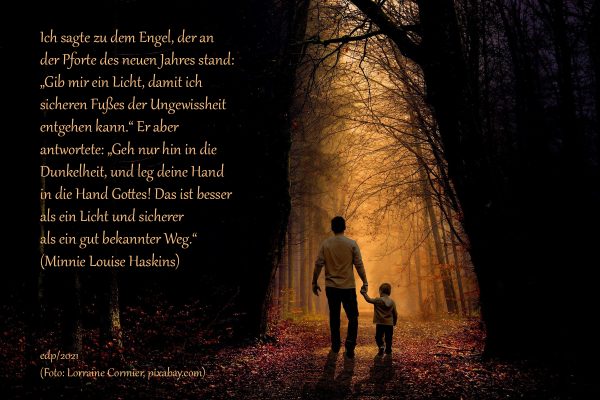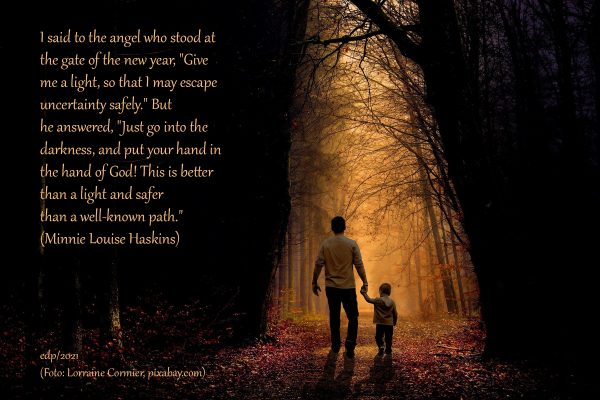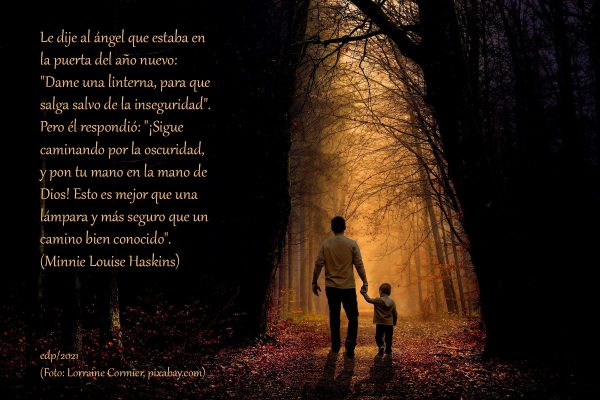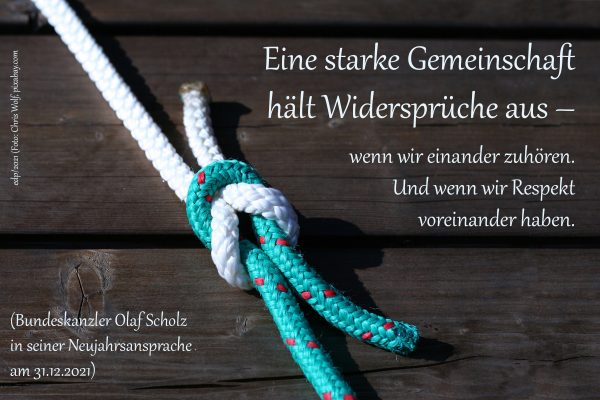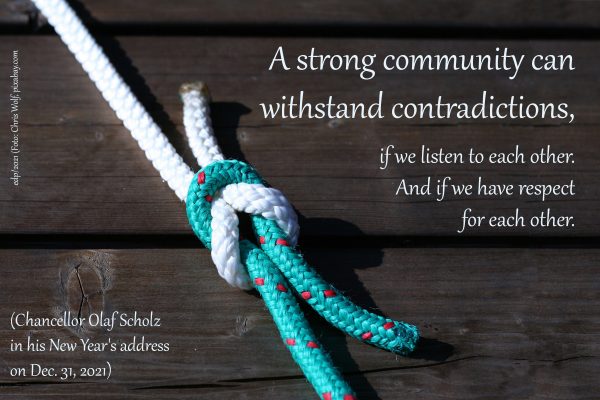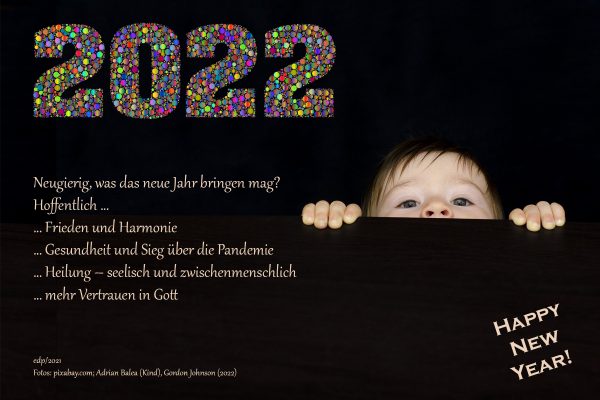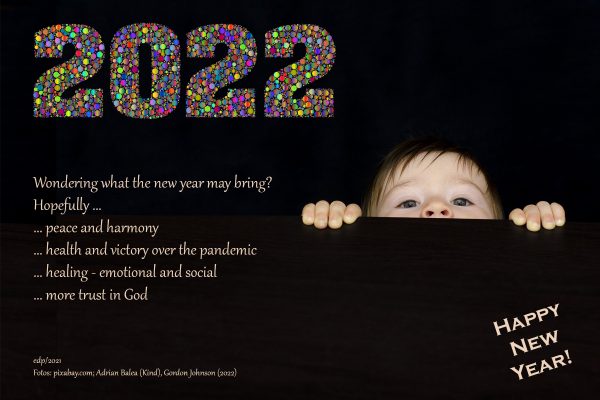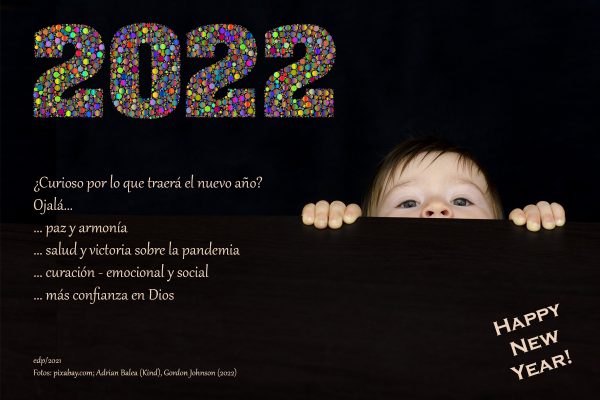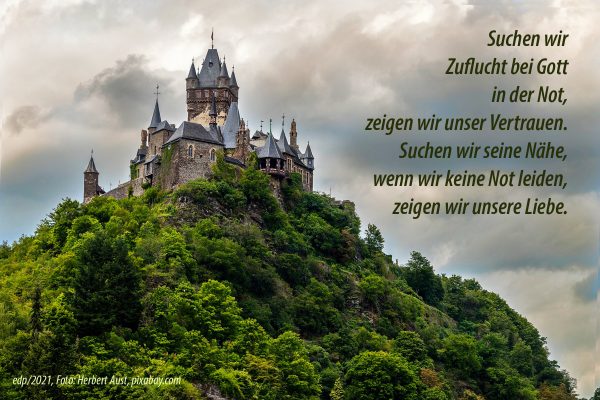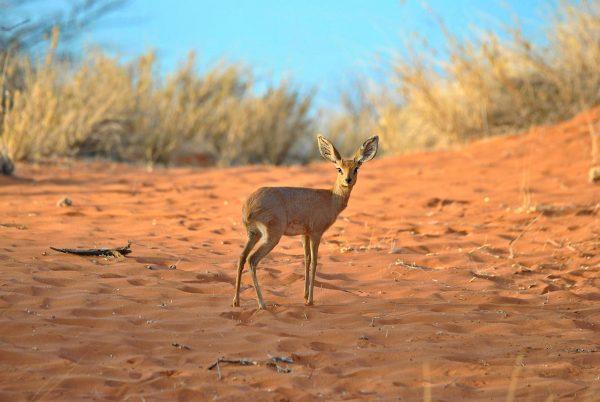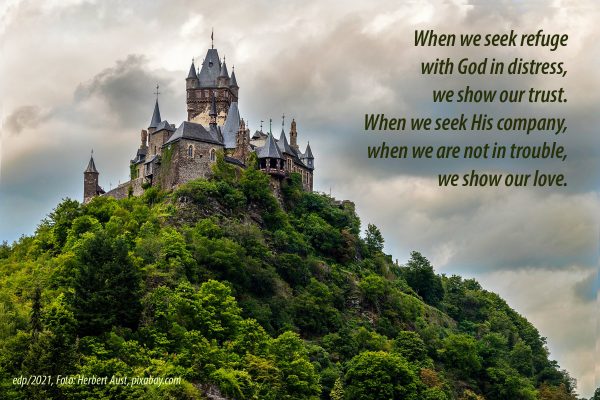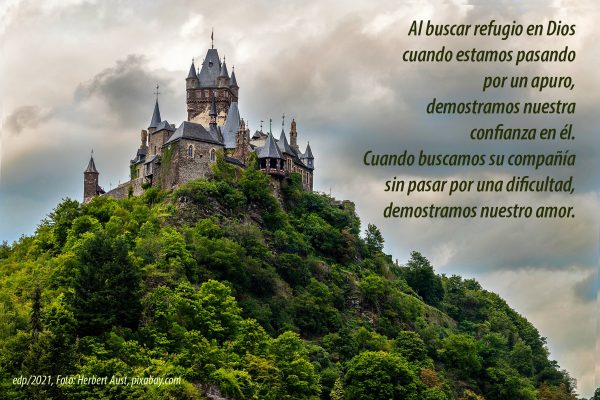[nx_spacer]
„Manchmal sollte man weder mit noch gegen den Strom schwimmen, sondern einfach aus dem Fluss klettern, sich ans Ufer setzen und eine Pause machen.“ N.N.
Für solch eine Pause bietet sich der Sabbat bestens an. Er ist Gottes wirksamste Impfung gegen die Viren der Arbeitssucht, der Faulheit, des Narzissmus und des Burnouts.
Was mir der Sabbat bedeutet, erzähle ich in einem Videoclip (ca. 3 Min.), den ich für die diesjährige Gebetswoche der Evangelischen Allianz in Lüneburg erstellt habe. Sie beginnt am 9. Januar und hat als Thema „Der Sabbat: Leben nach Gottes Rhythmus“.
- Mehr über diese Allianzgebetswoche (Themen, Kommentare, Material)
![]()
Simply take a break. Every week!
„Sometimes would be better to swim neither with nor against the current, but simply climb out of the river, sit on the bank and take a break.“ N.N.
The Sabbath is the best time for such a break. It is God’s most effective vaccine against the viruses of workaholism, indolence, narcissism and burnout.
What the Sabbath means to me, I tell in a video clip (3:19 min.), which I made for this year’s Evangelical Alliance Prayer Week in Lüneburg. It starts on January 9 and the theme is „The Sabbath: Living according to God’s rhythm„.
The wording of my video clip above:
My name is Elí and I belong to the Adventist church in Lüneburg for 30 years.
As a child, Shabbat lasted much too long for me: I grew up in a quite conservative family in Spain and we children were not allowed to do many things on this day that we enjoyed, such as playing football or swimming in the sea. So I was happy when Shabbat ended on Saturday evening.
But the older I got, the more I came to appreciate the Sabbath rest. As a student, for example, I was happy if I could leave the books and study material in the corner on that day without having a guilty conscience. Even during the whole day I didn’t have to think about it, but could really relax and recharge in church in the morning and in the youth group in the afternoon.
Later, in my professional life, I felt the same way. During the 25 years as a director of a publishing house, I took the unfinished work in the laptop home with me every day at the end of the working day, so that the nights were usually quite short. But on Sabbath, i.e. from Friday evening to Saturday evening, I didn’t touch the work. Voluntarily, no. Without feeling any pressure or having a guilty conscience, the Sabbath kept me from working through seven days – including the seven evenings.
Thus, in the course of my life, the day of rest has become more and more a liberating day for me – a true gift from God! A day to truly recharge in free time for my family, for God, in my church, in nature and much more.
I have been a pensioner for five and a half years now. One might think that I now have a permanent Sabbath. But that’s not the case when you have a fairly active retirement. So I look forward to this special day every week. When I was a child, it usually seemed too long, but now I regret that it is coming to an end so quickly.
I consider the Sabbath to be one of the greatest gifts God has given us humans, apart from Jesus Christ and his act of redemption, of course. Without Him, the Sabbath would be an ordinary holiday, filled with all kinds of side activities. Only through Jesus Christ and in connection with Him does this day become what the Creator set it aside for: a filling station for body, soul and spirit.
![]()
Tómate un descanso. ¡Cada semana!
„A veces convendría no nadar ni a favor ni en contra de la corriente, sino simplemente salir del río, sentarse en la orilla y disfrutar de un descanso.“ (Autor desconocido)
El sábado es el mejor momento para ese recreo. Es la vacuna más eficaz que Dios ofrece contra los virus de la adicción al trabajo, la pereza, el narcisismo y el agotamiento (burnout).
Hablo de lo que significa el sábado para mí en un videoclip (3:19 min.) que grabé para la Semana de Oración de la Alianza Evangélica de este año en Lüneburg. Comienza el 9 de enero y el tema es „El sábado: vivir según el ritmo de Dios„.
Traducción de mi videoclip arriba:
Me llamo Elí y pertenezco a la iglesia adventista de Lüneburg desde hace 30 años.
Cuando era niño, el Shabbat duraba demasiado para mí: Crecí en una familia bastante conservadora en España y a los niños no se nos permitía hacer muchas cosas en este día que nos gustaban, como jugar al fútbol o nadar en el mar. Así que me alegraba cuando el Shabbat terminaba el sábado al anochecer.
Pero cuanto más crecía, más apreciaba el descanso sabático. Como estudiante, por ejemplo, era feliz si podía dejar los libros y el material de estudio en el rincón ese día sin tener remordimientos. Incluso durante todo el día no se me ocurría pensar en ello, sino que podía relajarme y recargar las pilas en la iglesia por la mañana y en el grupo de jóvenes por la tarde.
Más tarde, en mi vida profesional, sentí lo mismo. Durante los 25 años en que fui director de una editorial, cada día me llevaba a casa, al final de la jornada laboral, el trabajo inacabado en el ordenador portátil, por lo que las noches solían ser bastante cortas. Pero el sábado, es decir, desde el viernes por la tarde hasta el anochecer del sábado, no tocaba el trabajo. Sin sentir ninguna presión ni remordimientos de conciencia, el sábado me impedía trabajar durante los siete días, incluidas las siete noches.
Así, a lo largo de mi vida, el día de descanso se ha convertido cada vez más en un día liberador para mí, ¡un verdadero regalo de Dios! Un día para recargarme de verdad en el tiempo libre para mi familia, para Dios, en mi iglesia, en la naturaleza y mucho más.
Hace ya cinco años y medio que soy pensionista. Uno podría pensar que ahora tengo un sábado permanente. Pero ese no es el caso cuando se tiene una jubilación bastante activa. Así que espero con impaciencia este día especial cada semana. Cuando era niño, me parecía demasiado largo, pero ahora lamento que se acabe tan rápido.
Considero que el sábado es uno de los mayores regalos que Dios nos ha dado a los humanos, aparte de Jesucristo y su acto de redención, por supuesto. Sin Él, el sábado sería una fiesta ordinaria, llena de todo tipo de actividades secundarias. Sólo a través de Jesucristo y en conexión con Él, este día se convierte en aquello para lo que el Creador lo reservó: una estación de repostar para el cuerpo, el alma y el espíritu.

